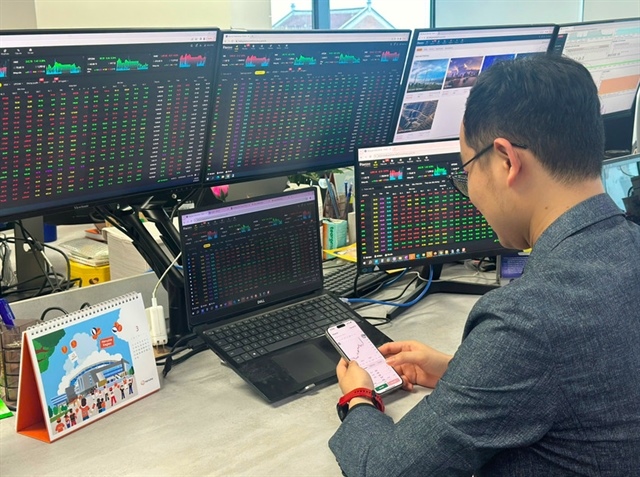Buyout opportunities seen in Vietnam imbalances: Southeast Asia
Buyout opportunities seen in Vietnam imbalances: Southeast Asia
Franklin Templeton Investments (BEN)’ venture in Vietnam said the time is right for buyout firms to invest in the country as it expects monetary and fiscal reforms to take effect over the next three to five years.

Low valuations, constrained bank lending and an improved corporate landscape mean private-equity investors have an opportunity to buy companies in the Southeast Asian country before the economy picks up again, said Avinash Satwalekar, chief executive officer of Vietcombank Fund Management, Templeton’s venture with Joint-Stock Commercial Bank for Foreign Trade of Vietnam.
“The best time to make investments is when the water is murky,” Satwalekar, 39, said in an interview in Singapore yesterday. “When its gets clear, that’s when everybody can make investments.”
Vietnamese leaders are trying to reverse the slowest growth since at least 1999 as the highest level of bad debt in Southeast Asia deterred lending and hurt business expansion. Prime Minister Nguyen Tan Dung forecasts growth will rise to 5.8 percent next year while his government prioritizes curbing inflation and banks’ liquidity has improved, he told lawmakers at a legislation session last month.
The economy will expand slightly less than 5.5 percent this year, the government said this month. Officials expect a slight increase in credit growth to as much as 14 percent next year while an asset management company may buy as much as 150 trillion dong ($7.1 billion) of banks’ bad debt by the end of 2014.
Left behind
The central bank cut a policy rate in July to support growth, after it devalued the currency the previous month to improve the balance of payments.
“Monetary and fiscal policy makers have created a very benign environment for investors, but I am still waiting for those policies to take effect,” Satwalekar said. “If you wait for that trigger, you run the risk of being left behind and then playing catch up.”
Satwalekar declined to give specifics on fundraising, citing U.S. regulations. His favorite sectors are agriculture, retail, education and food and beverage, he said.
“Our typical deal is between $5 and $15 million,” Satwalekar said. “We are not focusing on the bigger firms as those are largely state-owned.”
Vietnam’s benchmark VN Index (VNINDEX) is trading at 12.7 reported earnings, making it the cheapest equities market in Southeast Asia, according to data compiled by Bloomberg. While stock investors have pushed the gauge 21 percent higher this year, the biggest gain in Asia excluding Japan, buyout funds aren’t rushing in yet, according to Ernst & Young LLP.
Still waiting
“I wouldn’t say private equity in Vietnam is a flood yet,” Luke Pais, Asean private equity leader at Ernst & Young consultancy, said in an interview. “People are still waiting and watching. But certainly the number of deals has increased and people are spending more time looking at that market.”
Buyout firms have spent $287 million on stakes in five transactions this year, according to Preqin Ltd., a London-based research firm. That’s the highest number of deals in five years and biggest amount since at least 2006, it said.
KKR & Co. (KKR), the private-equity firm run by Henry Kravis and George Roberts, more than doubled its stake in a fish-sauce maker unit of Masan Group Corp. in January to $359 million after first investing in the company in April 2011.
In May, Warburg Pincus LLC, the private-equity owner of Neiman Marcus Group Inc., said it would lead a group to invest as much as $325 million in Vingroup Joint Stock Co., the firm’s first Southeast Asia deal since 2010.
Seeking investments
TPG Capital, the private-equity firm run by David Bonderman and James Coulter, said in July it will pay $50 million for a 49 percent stake in a Masan consumer unit.
For Templeton, the Vietcombank Fund Management’s 12 employees are already exploring opportunities in the country. Templeton owns 49 percent of the venture, while Vietcombank, the country’s fourth-largest bank by assets, has a 51 percent stake, according to Satwalekar.
The investments may also fill the gap created by the country’s banking sector while the government is seeking to overhaul almost $5 billion in bad debt that has crimped lending, he said.
“Banks are asking for more collateral than some firms can afford,” Satwalekar said. “There is limited access to capital. That’s where private equity can step in.”
bloomberg




























